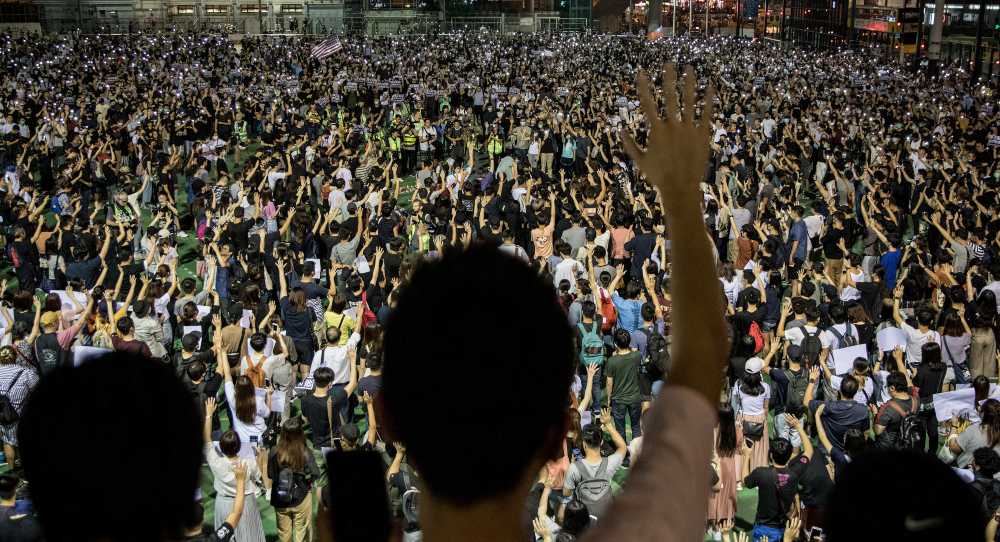Mass protests have spread around the world in recent years. In Algeria, Hong Kong, Russia, Sudan, and elsewhere, protests show a growing hunger among citizens for democracy. While democracy is struggling to retain its legitimacy, authoritarian regimes are also on the back foot—this is an era of popular mobilization against all forms of regime.
Yet the EU has become more cautious about supporting democratic reformers in recent years. Many official documents talk about the importance of supporting democracy for the EU’s own strategic interests, yet the union’s democracy and human rights policies generally remain relatively low-key.
The EU is now set to agree a new democracy strategy, and the union needs to decide whether it is really committed to putting democracy at the center of its geopolitical grand strategy for the twenty-first century.
The EU last agreed council conclusions on democracy support in 2009, and since then the global context has changed dramatically.
Democracy is struggling internationally and within the EU itself, while the United States is no longer the same partner in support of democratic change around the world. At the same time, many regimes have become more explicit and assertive in their attempts to neuter outside support for democratic reformers.
For these reasons, doubts have grown among policymakers about whether democracy support now has any place in EU external policies.
The gist of much debate in the last few years has been that the union needs to move toward a more interest-centered foreign policy strategy. Many see democracy support pushing so much against the grain of current trends that it is a largely doomed aspiration, however much effort the union might put into it.
Under Federica Mogherini’s term as the EU foreign policy chief, the union’s focus has been firmly on defense, security, and migration. In contrast, democracy support has continued as a low-profile area of aid projects, somewhat disconnected from the broader evolution of EU geostrategic visions.
The EU has been equivocal in fighting democratic regression. It has used sanctions in relation to security concerns (Russia, Syria) but increasingly recoils from using such measures to press for democracy.
In those cases where the EU has adopted critical measures, these have usually been fairly circumscribed. Recent cuts in pre-accession aid to Turkey are comprehensively outweighed by the six-billion-euro package to control migration. The EU’s 2017 sanctions against Venezuela are relatively limited in scope. It recently pushed strongly in Moldova to defend the democratically elected coalition from oligarchic interference, but only after years of its funds pouring into a feckless elite. In response to serious rights abuses in Cambodia and Myanmar, the EU is going through a lengthy process of considering removing trade privileges, but even this would be a limited step. A new human rights sanctions mechanism is being considered, but this is not likely to cover broader democratic reversals.
Instead, the union has actually deepened cooperation with regimes that are heading firmly in a more authoritarian direction. In a large number of such countries, the EU has either signed or is offering new trade and aid agreements, while dampening any critical edge to its policy—examples include Azerbaijan, Belarus, China, Cuba, Egypt, Kenya, and Vietnam. The EU is also looking to reopen trade talks with Thailand despite the military junta just having sown up rigged elections. Democratic reformers in Zimbabwe accuse the EU and some of its member states of being too quick to seek new commercial agreements after former president Robert Mugabe was ousted in 2017, when the new government is just as authoritarian. Exports of arms and surveillance technology from Europe to authoritarian regimes have increased dramatically. From 2013 to 2017, 84 percent of the EU’s development aid went to authoritarian or semi-authoritarian regimes.
Despite all its rhetoric about human rights and democracy being core values, the EU spends only around 0.1 percent of its budget on upholding these internationally. This is less than 2 percent of the aid budget. The proposed new EU budget promises an increase, but only by a limited amount compared to the huge funding it promises for security and border control cooperation with other countries. Only half a dozen member states spend non-negligible amounts of aid on democracy programs.
All these limitations mean there is much room for improvement in the new democracy strategy. And this improvement also needs to be qualitative—not simply a little bit more of what the EU has always done. If EU approaches to democracy have lost traction in recent years, it is also because they have failed to keep up with the larger political and strategic changes within and beyond Europe.
It is less clear today than it was a decade ago that democracy is really central to the EU’s world vision. If the EU doesn’t make democracy a core of how it defines its geostrategic interests and fundamentally rethink the way democracy fits into its overarching foreign policy, the new strategy will make little difference. And the incoming EU leadership will continue the union’s drift into democratic agnosticism.
This is the crucial decision that European leaders need to make as they sign off on the EU’s new democracy strategy.
Ken Godfrey is the executive director of the European Partnership for Democracy.
Richard Youngs is a senior fellow in the Democracy, Conflict, and Governance Program, based at Carnegie Europe.





.jpg)
